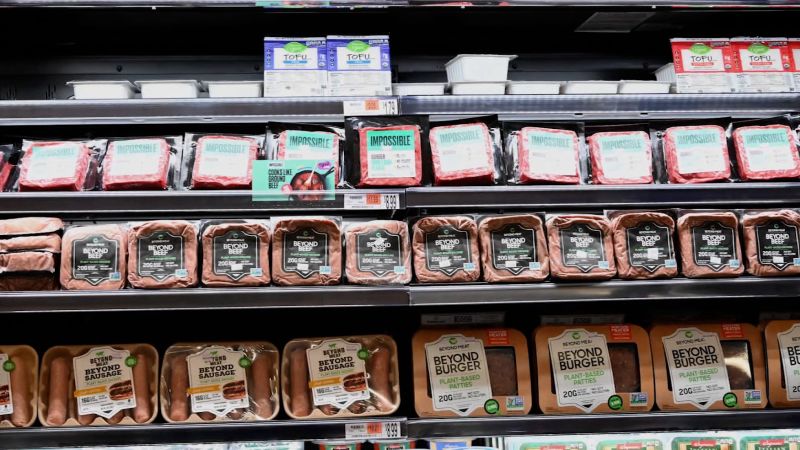
As the world grapples with the environmental impact of meat production, CNN’s Jake Tapper recently engaged in a compelling discussion with author Michael Grunwald on the pressing need for sustainable consumption practices. Grunwald, known for his insightful analysis of environmental issues, highlighted the severe consequences of current meat consumption levels and proposed simple yet effective changes that could significantly benefit the planet.
The conversation comes amid growing concerns over the sustainability of global meat production. According to the United Nations, the livestock sector is responsible for approximately 14.5% of all human-induced greenhouse gas emissions. This statistic underscores the urgent need for change, as the environmental footprint of meat production continues to expand.
The Environmental Cost of Meat Production
Meat production is not only a leading contributor to greenhouse gas emissions but also a major driver of deforestation, particularly in regions like the Amazon rainforest. The Environmental Protection Agency (EPA) reports that deforestation for cattle ranching releases significant amounts of carbon dioxide into the atmosphere, exacerbating climate change.
In addition to deforestation, the water usage associated with meat production is staggering. The World Health Organization estimates that producing one kilogram of beef requires approximately 15,000 liters of water. This level of consumption is unsustainable, especially in water-scarce regions.
The Role of Consumer Choices
Grunwald emphasized that individual consumer choices can play a pivotal role in mitigating these environmental impacts. By reducing meat consumption and opting for plant-based alternatives, individuals can contribute to a more sustainable future. “Even small changes, like participating in ‘Meatless Mondays,’ can collectively lead to significant environmental benefits,” Grunwald noted.
“If every American reduced their meat consumption by just one meal a week, it would be equivalent to taking 500,000 cars off the road,” he added, citing research from the Environmental Working Group.
Global Efforts and Policy Implications
This development follows a series of initiatives by governments and organizations worldwide to address the environmental challenges posed by meat production. The European Union has been at the forefront, implementing policies aimed at reducing agricultural emissions and promoting sustainable farming practices.
Meanwhile, countries like Brazil and China are exploring innovative solutions to balance economic growth with environmental sustainability. These efforts are crucial, given the projected increase in global meat demand as populations and incomes rise.
Historical Context and Future Outlook
The current focus on sustainable meat consumption is reminiscent of past environmental movements that successfully addressed issues like acid rain and ozone depletion. These historical parallels offer hope that concerted global efforts can lead to meaningful change.
Looking forward, experts believe that a combination of consumer awareness, technological innovation, and supportive policies will be key to achieving a sustainable meat industry. The transition to sustainable practices is not without challenges, but the potential benefits for the environment and future generations are immense.
Conclusion: A Call to Action
As the conversation around meat consumption and sustainability continues to evolve, it is clear that both individual actions and systemic changes are necessary. The move towards a more sustainable future requires collaboration across sectors and borders, with each stakeholder playing a critical role.
In conclusion, while the path forward may be complex, the potential for positive impact is undeniable. As Grunwald aptly put it, “The choices we make today will shape the world we leave for tomorrow.”






